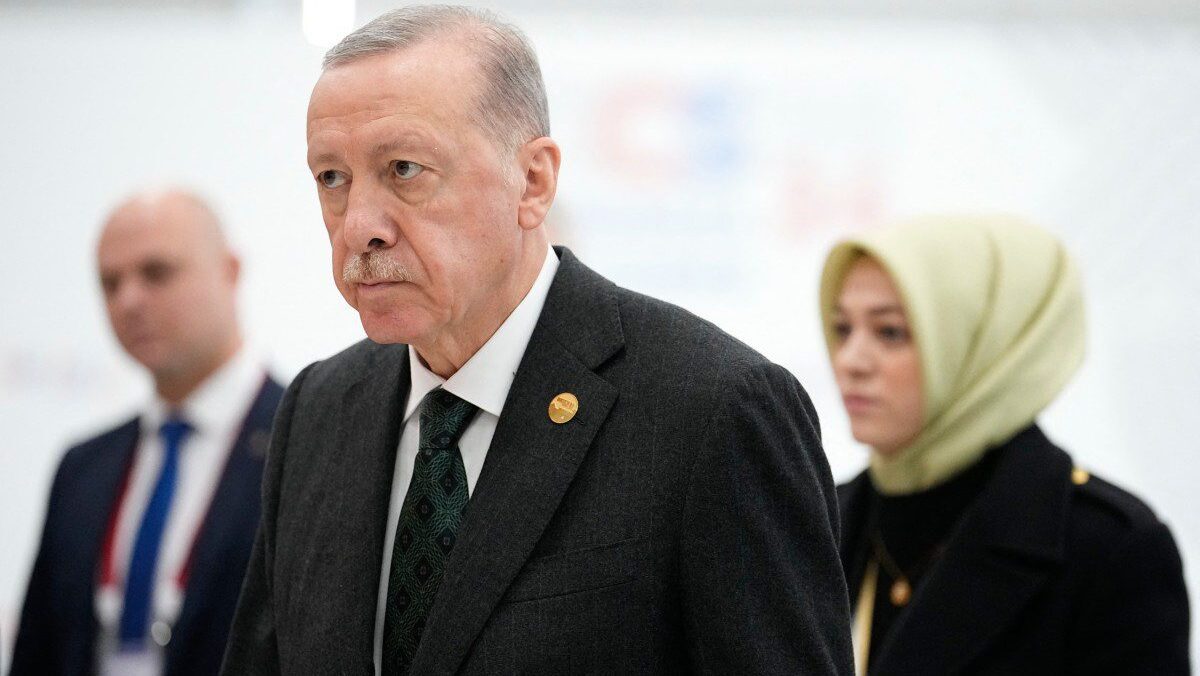
Turkey’s President Recep Tayyip Erdoğan arrives at the BRICS summit in Kazan on October 24, 2024.
Photo: Alexander Zemlianichenko / POOL / AFP
Turkey has launched airstrikes on Kurdish militant positions in Iraq and Syria following a deadly terrorist attack on a Turkish defence contractor’s facility near Ankara.
The assault, which involved both a bomb and gunfire, claimed the lives of five people, including employees of Turkish Aerospace Industries (TAI) and a taxi driver, and left 22 others injured.
The Turkish government responded swiftly, blaming the Kurdistan Workers’ Party (PKK) for the attack, though no group had officially claimed responsibility.
According to Turkish authorities, the strikes targeted 32 PKK-linked sites, including military and infrastructure facilities in northern Iraq and Syria.
The PKK, which has been engaged in a decades-long conflict with the Turkish state, is considered a terrorist organisation by both Turkey and the United States. The conflict, centred around Kurdish demands for greater autonomy, has claimed thousands of lives over the years.
The defence company, TAI, plays a crucial role in Turkey’s military-industrial complex, manufacturing drones and fighter jets, which have been utilised in several conflicts, including the war in Ukraine.
Turkish President Recep Tayyip Erdoğan condemned the attack, calling it a blow to Turkey’s national security and defence ambitions. Defence Minister Yaşar Güler vowed to pursue the PKK until “the last terrorist is eliminated.”
The Kurdish-led Syrian Democratic Forces (SDF), which includes groups affiliated with the PKK, claimed that the Turkish strikes resulted in civilian casualties, with 12 civilians, including two children, reportedly killed in the airstrikes. The SDF also stated that Turkish forces “targeted bakeries, power stations, oil facilities and (Kurdish) Internal Security Force checkpoints.” In response, the Turkish Defence Ministry insisted that all necessary precautions were taken to avoid civilian harm.
Wednesday’s attack marks the latest flashpoint in the ongoing conflict between Turkey and Kurdish militants. In the last decade, Turkey has witnessed multiple terrorist incidents, often attributed to the PKK or Islamic State.
Turkish media reports indicate that one of the attackers involved in the bombing was identified as a PKK member, and that the pair arrived at the defence company’s compound via a taxi, which was later destroyed in the explosion. Despite the presence of heightened security, the attackers managed to infiltrate the facility before being killed in a shootout with police.
An analysis by The Times says the attack comes at a time of renewed discussion about potential peace talks between Turkey and the PKK. Devlet Bahçeli, the leader of the Nationalist Movement Party and a key Erdoğan ally, recently called for a peace deal with the PKK, proposing a reduction in the prison sentence of PKK leader Abdullah Öcalan in exchange for disbanding the militant group. However, such proposals have met with strong opposition from factions on both sides.
Speculation surrounds whether the recent bombing may have been an attempt by the PKK to derail these potential peace efforts. The Times suggests that despite the retaliatory airstrikes, political realignments in Turkey and the Middle East might create a window for settling the long-standing conflict. However, such attacks have historically undermined peace efforts, and the emotional and political fallout from the Ankara bombing could stymie any future negotiations.
